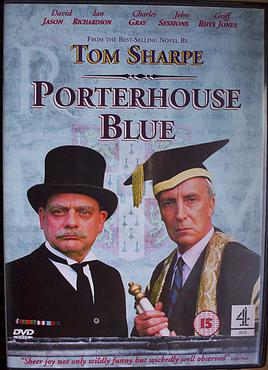
Peterhouse is the oldest constituent college of the University of Cambridge in England, founded in 1284 by Hugh de Balsham, Bishop of Ely. Today, Peterhouse has 254 undergraduates, 116 full-time graduate students and 54 fellows. It is quite often erroneously referred to as Peterhouse College, although the correct name is simply Peterhouse.

Selwyn College, Cambridge is a constituent college of the University of Cambridge. The college was founded in 1882 by the Selwyn Memorial Committee in memory of George Augustus Selwyn (1809–1878), the first Bishop of New Zealand (1841–1868), and subsequently Bishop of Lichfield (1868–1878). Its main buildings consist of three courts built of stone and brick. There are several secondary buildings, including adjacent townhouses and lodges serving as student hostels on Grange Road, West Road and Sidgwick Avenue. The college has some 60 fellows and 110 non-academic staff.

Grantchester is a village and civil parish on the River Cam or Granta in South Cambridgeshire, England. It lies about two miles (3 km) south of Cambridge.

Corpus Christi College is a constituent college of the University of Cambridge. From the late 14th century to the early 19th century it was also commonly known as St Benet's College.

The University of Edinburgh, the majority of colleges at the universities of Cambridge, Durham and Oxford, as well as newer collegiate universities such as Lancaster University, University of York, and older universities like University of Bristol and St David's College, have members of staff called porters. There is normally a head porter and a team of other porters. Their precise job roles vary from college to college. Oxbridge porters are highly sought after jobs. Porters work in a section of the college called the porters' lodge, at the main entrance.

Grantchester Grind is a novel written by Tom Sharpe, a British novelist born in 1928 who was educated at Lancing College and then at Pembroke College, Cambridge.
Robert Jeremy Adam Inch Catto was a British historian who was a Rhodes fellow and tutor in Modern History at Oriel College, Oxford, where he was also senior dean. Catto was a Brackenbury Scholar in History at Balliol College, Oxford, where he graduated with first-class honours. He held a master's degree (M.A.) and a doctorate (D.Phil.) From 1964 to 1969 he was employed as a tutor at Hatfield College, Durham. During this time he became acquainted with Mark Lancaster and Bryan Ferry, who were then art students in nearby Newcastle.

Porterhouse Blue is a novel written by Tom Sharpe, first published in 1974. A satirical look at Cambridge life and the struggle between tradition and reform, Porterhouse Blue tells the story of Skullion, the Head Porter of Porterhouse, a fictional college of Cambridge University.

Wilt is a comedic novel by Tom Sharpe, first published by Secker and Warburg in 1976. Later editions were published by Pan Books, and Overlook TP. The novel was a bestseller. Its success led to the author writing several sequels. The descriptions of teaching in the novel are drawn from Sharpe's own experience as a lecturer at the Cambridge College of Arts and Technology.
There are a number of popular legends associated with Cambridge University and its 800 year-old history, often recounted by punt guides to tourists while cruising the River Cam. Some are true, some contain elements of truth, and others are somewhat more fabricated. The myths and legends listed below represent a select few of the traditions and stories associated with Cambridge.
Porterhouse can refer to:
John Fuller FRSL is an English poet and author, and Fellow Emeritus at Magdalen College, Oxford.

Lord Jeremy Pimpole is a fictional character created by author Tom Sharpe, a British novelist. The character of Lord Pimpole is first mentioned in Porterhouse Blue (1974), set in the fictitious Porterhouse College in Cambridge. Pimpole went up to Porterhouse as a student in 1959.

Sir Godber Evans is a central character in Porterhouse Blue (1974) and, posthumously, Grantchester Grind (1995), two novels about life in the fictitious Porterhouse College at Cambridge by British novelist Tom Sharpe. For centuries, Porterhouse College has been renowned for its cuisine, the prowess of its rowers and the low level of its academic achievements.
Roger Goad (1538–1610) was an English academic theologian, Provost of King's College, Cambridge, and three times Vice-Chancellor of the University of Cambridge.

Thomas Ridley Sharpe was an English satirical novelist, best known for his Wilt series, as well as Porterhouse Blue and Blott on the Landscape, all three of which were adapted for television.

Grantchester is a British ITV detective drama set in the 1950s in the Cambridgeshire village of Grantchester. The show first featured Anglican vicar Sidney Chambers, and subsequently vicar William Davenport, each of whom develop a sideline in sleuthing with the help of Detective Inspector Geordie Keating, played by Robson Green.

Porterhouse Blue is a 1987 television comedy series adapted by Malcolm Bradbury from the 1974 Tom Sharpe novel of the same name for Channel 4 in four episodes. It starred David Jason as Skullion, Ian Richardson as Sir Godber Evans, Barbara Jefford as his wife Lady Mary, Charles Gray as Sir Cathcart D'Eath, and John Sessions as Zipser. Also appearing were Griff Rhys Jones as Cornelius Carrington, Paula Jacobs as Mrs. Biggs, Bob Goody as Walter, Paul Rogers as the Dean, John Woodnutt as the Senior Tutor, Lockwood West as the Chaplain, Willoughby Goddard as Professor Siblington, Harold Innocent as the Bursar and Ian Wallace as the Praelector.
John Pulling was a British academic.















